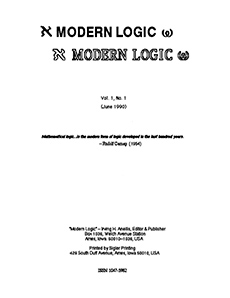Abstract
Although the concept of a Boolean algebra has its roots in the algebra of logic, an algebra of logic of the nineteenth century was a scheme for symbolizing logical relationships as algebraic ones in such a way that logical deductions could be accomplished by algebraic manipulations. Boole wrote three works on logic, but it is in the first of these, the 1847 The Mathematical Analysis of Logic, Being an Essay Towards a Calculus of Deductive Logic, that one finds the most careful algebraic development. None of the three, however, dealt adequately with existential statements and, in fact, none of Boole's successors dealt adequately with them either, although some of the later versions of the algebra of logic improved substantially on Boole's treatment. Despite these improvements, during the approximately fifty years that constituted the period in which the algebra of logic was the mainstream of mathematical research in logic, logicians never agreed upon a single notation system. Finally, around the turn of the century, the term "algebra of logic" began to be used in the modern sense of Boolean algebra and, because of that, what Boole started in 1847 is now essentially hidden.
Citation
Judy Green. "The algebra of logic: what Boole really started." Mod. Log. 4 (1) 48 - 62, January 1994.
Information




